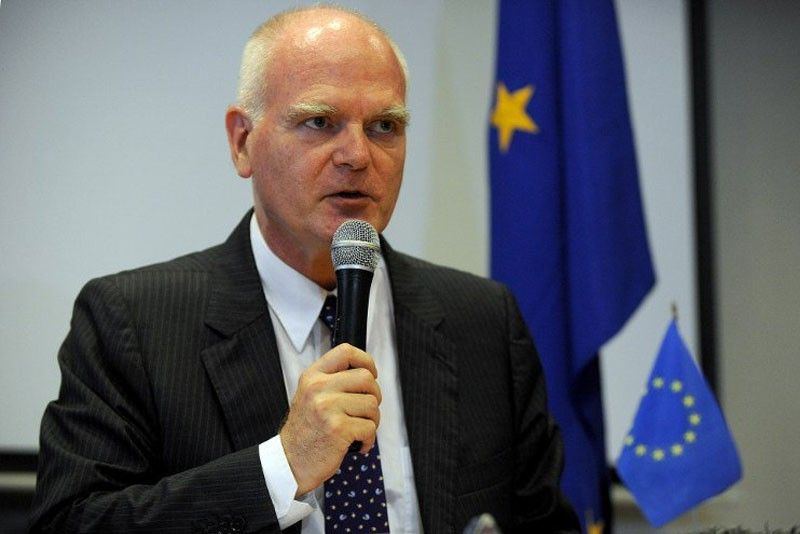EU urges Asean to accede to cybercrime treaty

MANILA, Philippines — The European Union has called on the Association of Southeast Asian Nations (ASEAN) to follow the Philippines in joining the Budapest Convention on Cybercrime, the only international treaty that provides a framework for countries to cooperate on cybercrime investigation and electronic evidence.
EU Ambassador Franz Jessen congratulated the Philippines for joining the convention.
“Become ambassadors for the Budapest Convention on Cybercrime in your countries so that we can see more ASEAN countries acceding the convention in the future, resulting in an easier common fight against cybercrime by having this as a common tool,” he said.
The Convention was first signed in Budapest, Hungary on Nov. 23, 2001. The Philippines, through President Duterte, signed the instrument of accession on Dec. 9, 2016.
Last February, the Senate unanimously concurred in the ratification of the Budapest Convention on Cybercrime.
The EU supported a four-day Introductory Training Course on Cybercrime and Electronic Evidence for Prosecutors and State Attorneys of the ASEAN region, organized by the Supreme Court of the Philippines and the Council of Europe, that concluded on Nov. 23.
Thirty participants from nine ASEAN countries were trained by previously formed Philippine trainers on cybercrime legislation, procedural powers in relation to electronic evidence and tools for international cooperation and have become trainers, too.
As crime is increasingly moving into cyberspace, any type of criminal activity may now entail evidence in electronic form. The EU said securing such evidence to bring offenders to justice is a major challenge as it may be stored on servers in foreign, multiple or unknown jurisdictions “somewhere in the cloud.”
The EU and the Council of Europe, through the joint project on Global Action on Cybercrime Extended, are working with countries worldwide to develop sustainable training programs on cybercrime and electronic evidence, both for the judiciary and for law enforcement.
The Philippines has been one of the priority countries of this capacity-building initiative since 2014, benefitting from training courses, legislative advice and exposure to regional and international conferences and workshops on cybercrime.
“Crime and criminals respect no state boundaries. In this virtual and interconnected world, our collective defense against cybercriminals and cybercrime is only as strong as our weakest link… (A) critical mass of trainers is necessary if we are to establish a web of experts that can contain, neutralize and protect our entire region from the pernicious effects of cybercrime,” Justice Secretary Menardo Guevarra said during the opening of the regional training.
The economic and social impact of cybercrime in the region is huge and has been widely acknowledged, including through the ASEAN Declaration to Prevent and Combat Cybercrime that was adopted in Manila on Nov. 13, 2017. – With Edu Punay
- Latest
- Trending






























